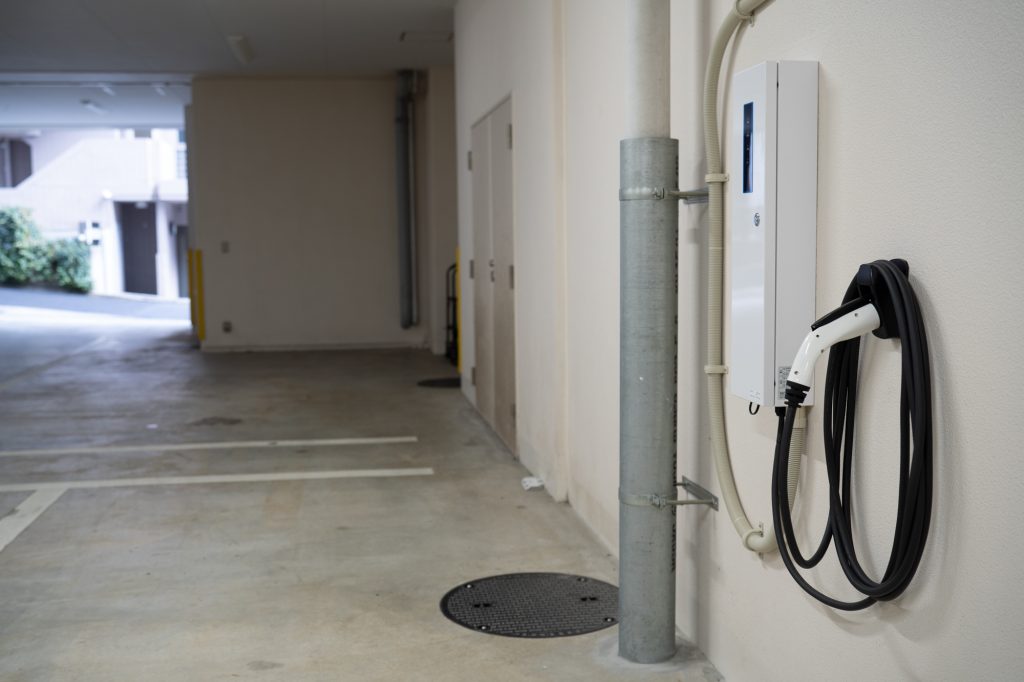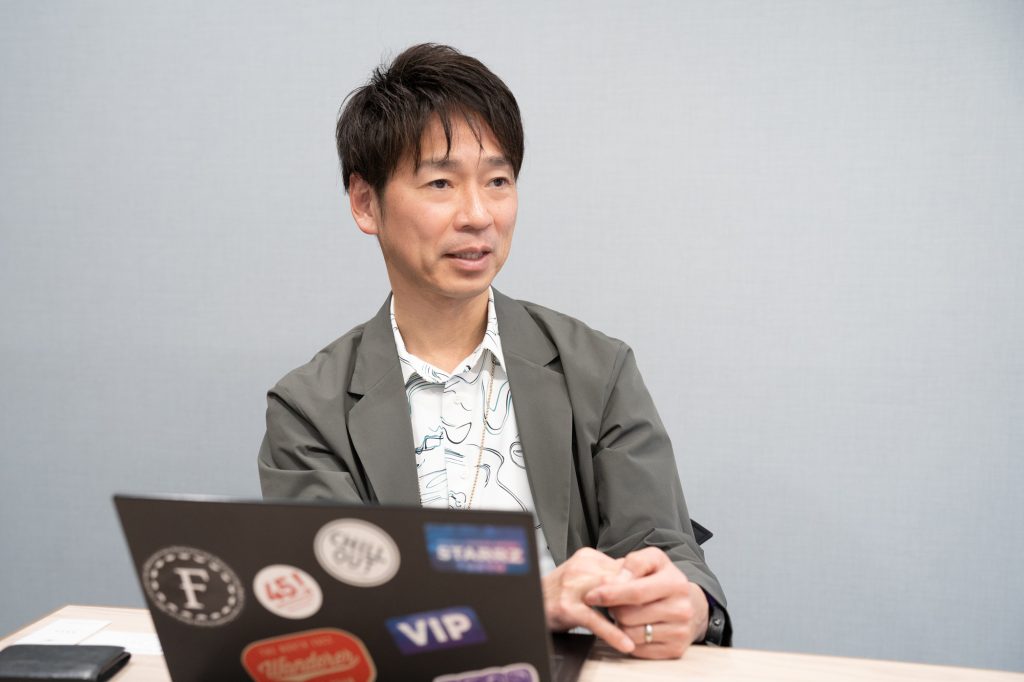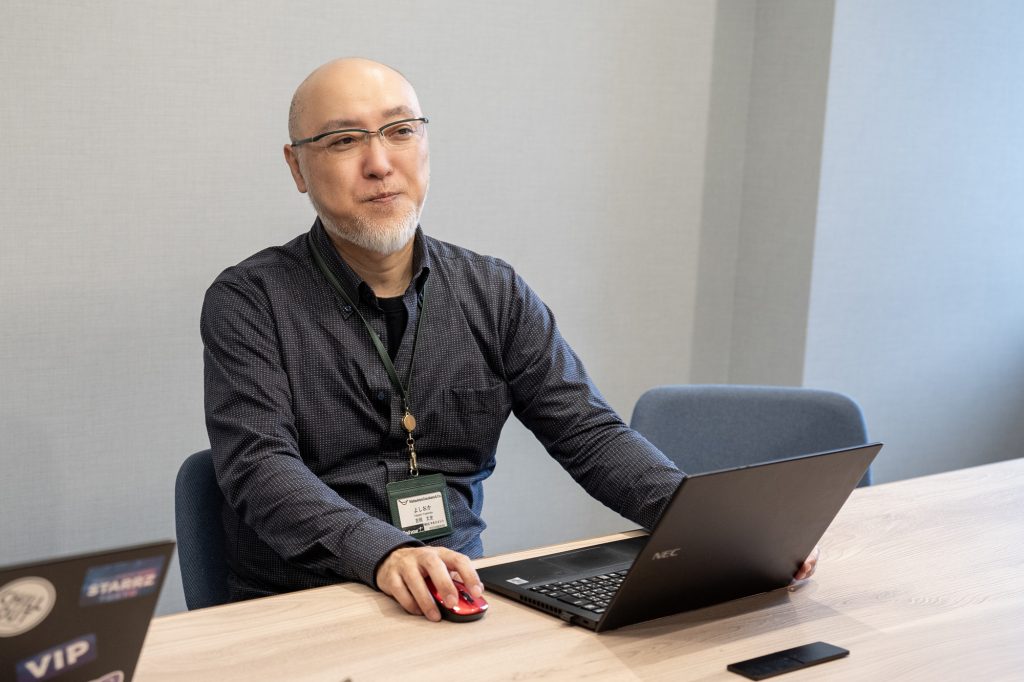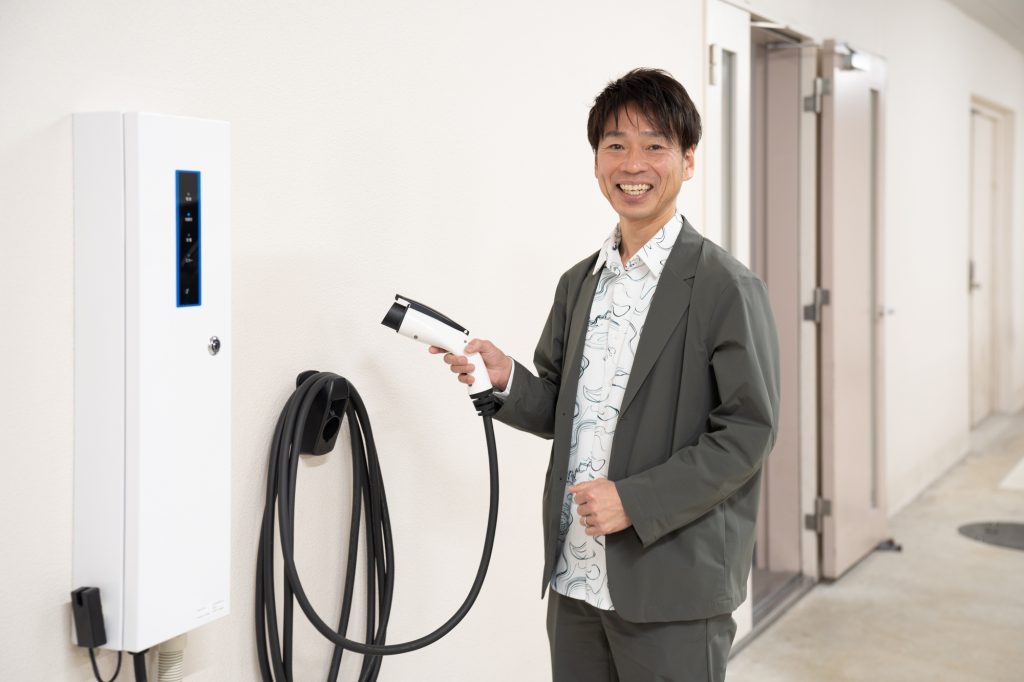Matsukiyo Cocokara & Company: Taking the First Step Toward Net-Zero CO2 Emissions
2025年01月25日
A leading drugstore chain with around 3,500 stores across Japan, Matsukiyo Cocokara & Company, has installed a 6kW EV charger for company vehicles at its headquarters in Yushima, Tokyo. This marks the company’s first step toward achieving its CO2 reduction goals as part of its corporate strategy. We had the chance to speak with the person overseeing the initiative to learn more.
The First Step Toward Net-Zero CO2 Emissions
Matsukiyo Cocokara & Company was established through the business integration of Matsumoto Kiyoshi Holdings Co., Ltd. and Cocokara Fine Inc. The 6kW charger was installed in the parking lot of the company’s headquarters building in Yushima, Tokyo. The unit, a Pit-2G series model from Nitto Kogyo, is wall-mounted.

This charger operates on “Yourstand for Business,” a EV charging management system (CSMS) tailor made for corporate clients offered by Yourstand. The CSMS ensures that only pre-registered users can access the charger. The user interface is web-based, allowing employees to log in via smartphone or computer to easily start or stop charging sessions.
The system also includes a booking feature, enabling users to secure a charging slot in advance—such as before returning to the office from a client visit or delivery. For administrators or managers, the platform provides real-time monitoring of the charger’s operational status via a computer dashboard.
We spoke with Eisei Tsurumi and Takeshi Yoshioka from the General Affairs Planning Department at MCC Management, the shared service center of Matsukiyo Cocokara & Company, about the reasons behind implementing this charging system.


Matsukiyo Cocokara & Company has identified “caring for the health of the planet” as one of its key priorities in working toward the realization of its group philosophy and vision. The company has committed to becoming an entity that contributes to an ethical society by reducing CO2 emissions.
“In our efforts to reduce CO2 emissions, we’ve already been converting store lighting to LED and upgrading air conditioning systems in locations across the country. The next step is transitioning our fleet to electric. Installing EV chargers at our headquarters is the first step in this process,” they explained.
The company is also actively working on a shift towards electric, such as adopting the “ASF2.0” commercial EV van—produced by a Japanese startup through fabless manufacturing—for its store delivery service, Matsukiyo Cocokara Q. In addition to these efforts, the company plans to introduce more CO2-reducing vehicles for employee use, further advancing their sustainability initiatives.
Tsurumi and Yoshioka emphasized the importance of addressing environmental conservation as a corporate social responsibility and a way to ultimately enhance corporate value. “We’re committed to achieving the CO2 reduction goals we’ve set. However, since EV adoption is still in its early stages, some employees feel apprehensive, citing concerns like limited driving range or uncertainty about how to charge EVs. We believe it’s essential to foster a sense of security and work on changing mindsets first,” they explained.
It’s true that the convenience, cost-effectiveness, and smooth driving experience of EVs are hard to grasp without actually trying them. While it’s common to install a charger after purchasing an EV, reversing the order—starting with installing chargers—can be an effective way to promote awareness and interest. With EV charging outlets becoming standard in new residential buildings, the sight of EV chargers in office buildings is likely to become more common as well. Having chargers readily available at workplaces and homes can help employees quickly understand the benefits of switching to EVs.
Supporting Pharmacies as Essential Lifelines
Tsurumi and Yoshioka also see disaster preparedness as another advantage of EV adoption. During large-scale disasters, local drugstores often serve as vital lifelines for communities. This is especially true for pharmacies that prepare medications based on prescriptions, playing a critical role in maintaining the health of disaster victims.
“There are pharmacies that have begun deploying EVs and PHEVs on a trial basis. For patients whose health depends on timely prescriptions, it’s crucial to keep pharmacy operations running. Even during power outages, EVs and PHEVs can supply electricity for a day or two, allowing us to power lights and equipment to maintain essential functions. The ability to provide such emergency support is something that the community appreciates, and we’d like to explore collaborations with nearby medical institutions as we consider the next steps,” they shared.

With around 1,000 pharmacy locations nationwide, Matsukiyo Cocokara & Company aims to enhance disaster preparedness by introducing EVs and installing EV chargers where necessary. In fact, one store has already begun a pilot program with two PHEVs and one ASF2.0 EV to test their practicality.
Alongside installing one charger at its headquarters, the company has also installed three chargers at the Matsumoto Kiyoshi Group’s Shin-Matsudo Office in Matsudo City, Chiba Prefecture. As the company scales its EV fleet and gains more hands-on experience with the system, it will be interesting to hear their insights and see further developments. If disaster preparedness drills involving EVs at pharmacies are held in the future, it would be great to revisit and report on their progress.
Interviewed by Tomoari Shinohara
Translated by ChatGPT and edited by Dennis Chia
